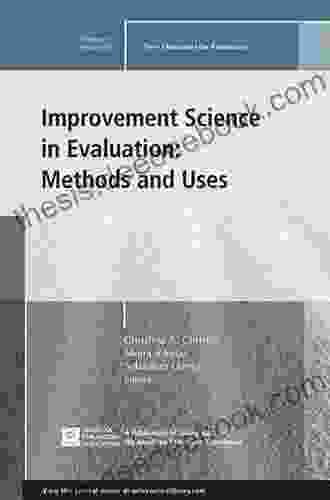Improvement Science In Evaluation: Empowering Continuous Quality Improvement

In today's rapidly evolving world, continuous quality improvement is more crucial than ever. Improvement Science, a systematic approach to improving outcomes and processes, has emerged as a transformative force in evaluation. By integrating Improvement Science principles, evaluators can empower stakeholders to make evidence-based decisions, drive meaningful change, and ultimately enhance the quality of services and programs.
5 out of 5
| Language | : | English |
| File size | : | 3689 KB |
| Text-to-Speech | : | Enabled |
| Screen Reader | : | Supported |
| Enhanced typesetting | : | Enabled |
| X-Ray for textbooks | : | Enabled |
| Word Wise | : | Enabled |
| Print length | : | 113 pages |
| Lending | : | Enabled |
What is Improvement Science?
Improvement Science is a scientific approach to systematically testing and implementing changes to improve processes, outcomes, and systems. It is based on the principles of the scientific method and involves:
- Plan: Identifying the problem or area for improvement and developing a plan to address it.
- Do: Implementing the plan and making changes to the process or system.
- Study: Observing the results of the changes and collecting data to assess their effectiveness.
- Act: Analyzing the data, making adjustments, and taking further action to improve the process or system.
How Improvement Science Enhances Evaluation
By integrating Improvement Science principles, evaluation becomes more:
1. Iterative and Collaborative
Improvement Science promotes an iterative approach to evaluation, allowing evaluators to continuously refine interventions and make adjustments based on data and feedback. It encourages collaboration between evaluators, stakeholders, and end-users, fostering a shared understanding of the improvement process.
2. Evidence-Based and Data-Driven
Improvement Science emphasizes the use of data to inform decision-making. Evaluators collect quantitative and qualitative data throughout the improvement cycle, providing evidence to support changes and justify interventions. This data-driven approach ensures that decisions are based on objective information rather than assumptions.
3. Focused on Outcomes and Impact
Improvement Science places a strong emphasis on measuring outcomes and assessing impact. By establishing clear goals and metrics upfront, evaluators can track progress and determine the effectiveness of interventions. This outcome-oriented approach ensures that evaluations are aligned with the organization's strategic objectives.
4. Empowering and Sustainable
Improvement Science empowers stakeholders at all levels to participate in the evaluation and improvement process. By providing training and support, evaluators equip stakeholders with the skills and knowledge to make data-informed decisions and drive sustainable change. This empowers organizations to foster a culture of continuous quality improvement.
Applications of Improvement Science in Evaluation
Improvement Science can be applied in diverse evaluation contexts, including:
Healthcare Evaluation
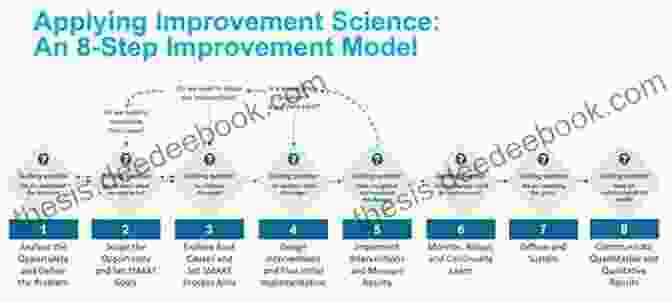
In healthcare, Improvement Science is used to improve patient care, reduce costs, and enhance efficiency. Evaluators apply Improvement Science principles to evaluate interventions such as new treatments, care pathways, and quality improvement programs.
Education Evaluation
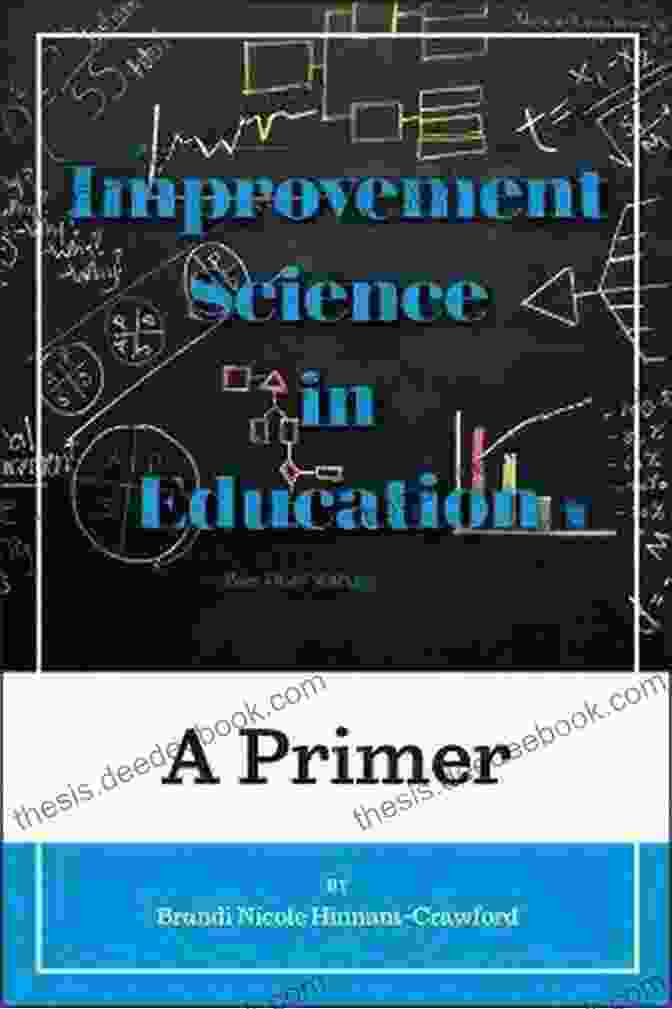
In education, Improvement Science is used to improve student learning outcomes, enhance teaching practices, and optimize educational systems. Evaluators utilize Improvement Science to evaluate interventions such as new curriculum, teaching methods, and professional development programs.
Program Evaluation
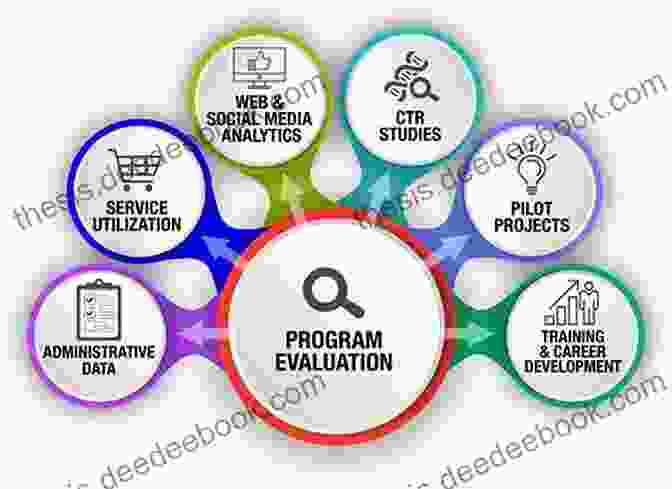
In program evaluation, Improvement Science is used to assess the effectiveness and impact of programs, improve program design, and ensure program sustainability. Evaluators apply Improvement Science principles to evaluate programs in areas such as social services, community development, and economic development.
Benefits of Using Improvement Science in Evaluation
Integrating Improvement Science in evaluation offers numerous benefits, including:
- Empowers stakeholders to make evidence-based decisions
- Drives continuous quality improvement and innovation
- Enhances program effectiveness and impact
- Promotes collaboration and shared ownership
- Fosters a culture of learning and accountability
- Increases transparency and accountability
- Ensures sustainability and long-term impact
Improvement Science is a powerful tool that can transform evaluation and empower organizations to continuously improve their processes, outcomes, and systems. By integrating Improvement Science principles, evaluators can provide stakeholders with the data and support they need to make informed decisions, drive meaningful change, and ultimately enhance the quality of services and programs. As organizations embrace Improvement Science in evaluation, they unlock the potential for continuous quality improvement and lasting impact.
5 out of 5
| Language | : | English |
| File size | : | 3689 KB |
| Text-to-Speech | : | Enabled |
| Screen Reader | : | Supported |
| Enhanced typesetting | : | Enabled |
| X-Ray for textbooks | : | Enabled |
| Word Wise | : | Enabled |
| Print length | : | 113 pages |
| Lending | : | Enabled |
Do you want to contribute by writing guest posts on this blog?
Please contact us and send us a resume of previous articles that you have written.
 Book
Book Novel
Novel Story
Story Reader
Reader Library
Library Paperback
Paperback E-book
E-book Magazine
Magazine Newspaper
Newspaper Paragraph
Paragraph Sentence
Sentence Bookmark
Bookmark Shelf
Shelf Foreword
Foreword Synopsis
Synopsis Manuscript
Manuscript Scroll
Scroll Codex
Codex Bestseller
Bestseller Classics
Classics Library card
Library card Memoir
Memoir Reference
Reference Dictionary
Dictionary Thesaurus
Thesaurus Narrator
Narrator Librarian
Librarian Catalog
Catalog Card Catalog
Card Catalog Stacks
Stacks Archives
Archives Periodicals
Periodicals Research
Research Reserve
Reserve Academic
Academic Rare Books
Rare Books Literacy
Literacy Study Group
Study Group Thesis
Thesis Book Club
Book Club Kate Mclaughlin
Kate Mclaughlin Ruth Milkman
Ruth Milkman Paul Avrich
Paul Avrich Mark Richards
Mark Richards Anthony Neilson
Anthony Neilson Jeffrey Adams
Jeffrey Adams Tom Hickman
Tom Hickman John Glad
John Glad Daniel K L Chua
Daniel K L Chua N C Madigan
N C Madigan Rachel Chlebowski
Rachel Chlebowski Debbie Barry
Debbie Barry Luke Harding
Luke Harding Catherine Q Howe
Catherine Q Howe Orlando Figes
Orlando Figes Gary J Wolff
Gary J Wolff Ronald M Bazar
Ronald M Bazar Meredith Ramsay
Meredith Ramsay Jason H Rogers
Jason H Rogers John Middleton
John Middleton
Light bulbAdvertise smarter! Our strategic ad space ensures maximum exposure. Reserve your spot today!

 Charlie ScottThe Ultimate Guide to a Happy and Healthy Pet: Empowering Pet Owners with...
Charlie ScottThe Ultimate Guide to a Happy and Healthy Pet: Empowering Pet Owners with...
 Nathaniel PowellSingalongabingbong Myles McLeod: The Incredible Story of a Musical Phenomenon
Nathaniel PowellSingalongabingbong Myles McLeod: The Incredible Story of a Musical Phenomenon Colby CoxFollow ·4.3k
Colby CoxFollow ·4.3k Vincent MitchellFollow ·19.9k
Vincent MitchellFollow ·19.9k Raymond ParkerFollow ·4.5k
Raymond ParkerFollow ·4.5k Felipe BlairFollow ·5.1k
Felipe BlairFollow ·5.1k Edgar CoxFollow ·6k
Edgar CoxFollow ·6k Billy FosterFollow ·16.5k
Billy FosterFollow ·16.5k Amir SimmonsFollow ·17k
Amir SimmonsFollow ·17k Kenzaburō ŌeFollow ·7.6k
Kenzaburō ŌeFollow ·7.6k
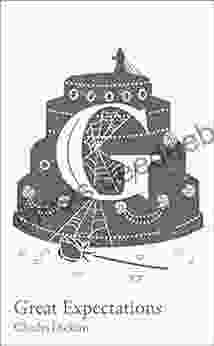
 Russell Mitchell
Russell MitchellGCSE Set Text Student Edition: Collins Classroom Classics...
The GCSE Set Text Student Edition: Collins...

 Ralph Turner
Ralph TurnerSix Sigma Lean Green Belt Training for Beginners with...
What is Six...

 Travis Foster
Travis Foster10 Life-Changing Lessons I Learned When I Was Single
Being single can...

 Jermaine Powell
Jermaine PowellOne Great Insight Is Worth a Thousand Good Ideas
In the competitive and...
5 out of 5
| Language | : | English |
| File size | : | 3689 KB |
| Text-to-Speech | : | Enabled |
| Screen Reader | : | Supported |
| Enhanced typesetting | : | Enabled |
| X-Ray for textbooks | : | Enabled |
| Word Wise | : | Enabled |
| Print length | : | 113 pages |
| Lending | : | Enabled |


